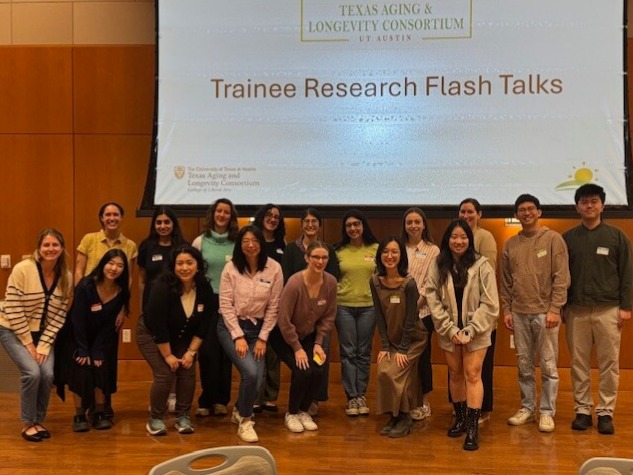Graduate Student Opportunities

TALC graduate student trainees at our 2025 "Trainee Research Flash Talks" event.
TALC hosts a community of graduate students who study aging, and aims to support and encourage their development and endeavors. Scholars who study aging at UT Austin are dispersed across 12 colleges or schools, and multiple departments. The Center provides these scholars with an academic home, as well as providing interdisciplinary training and knowledge to keep these scholars on the cutting edge.
Some of the things TALC does for graduate students include:
- Portfolio in Aging & Health
- Professional development seminars for graduate students across campuses with regard to aging and health
- Outside speakers series to bring innovative research from the field of aging to UT Austin
- Training workshops on specialized methods and topics in the field of aging
- Graduate Student Council
